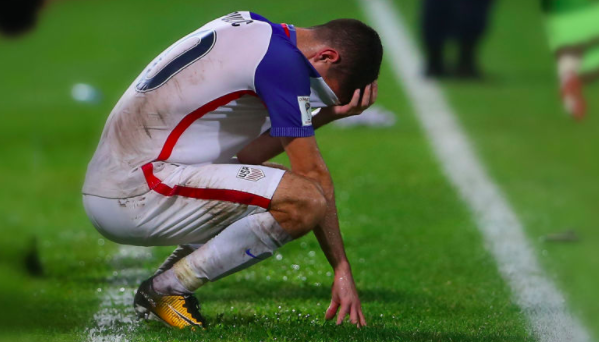By Jonathan Kaner ’18
The United States Men’s National Soccer team failed to qualify for the 2018 FIFA World Cup in Russia after a 2-1 defeat to last-place Trinidad and Tobago on Monday, Oct. 10.
“It comes as no surprise,” Uri Cattan ’18 said. “Despite having one of the easier qualifying regions, the lack of continuity in management and the lack of new fresh faces led to a stale USA.”
Reality set in for the team when the final whistle sounded after 90 minutes of desperate soccer. With Honduras’ upset over top-of-the-table Mexico, along with Panama’s last-minute winner against Costa Rica, the United States fell from third place to fifth place in the CONCACAF Hexagonal stage, officially eliminating them from qualification in the World Cup for the first time since 1986.
“It is so upsetting to not get watch the U.S. play next summer,” Abi Genser ’18 said. “I will not be surprised if players and coaches lose their jobs.”
Coach Bruce Arena, hired less than a year ago after a pair of consecutive defeats under former coach Jurgen Klinsmann, is now on the hot seat, with speculation already underway as to who will take his place.
Although Arena started his campaign undefeated through eight games, a loss to Costa Rica and tie to Honduras in the Hexagonal stage of World Cup qualifiers was the beginning of his eventual downfall.
“I think it’s disappointing. It’s a blemish for us,” Arena said in a post-match press conference. “We should not be staying home for this World Cup. I take responsibility for that.”
Other fans blamed the youth developmental system that the U.S. soccer federation organizes, criticizing the price people have to pay to play in the country.
Many people were looking forward to see the new “Wonder Kid,” Christian Pulisic, who took the country by storm after signing with European powerhouse Borussia Dortmund, play in the World Cup.
“I was so excited to see Christian Pulisic play against some of the top countries,” Genser said. “But now who knows if he’ll ever even play in the World Cup.”
For U.S. soccer fans, not qualifying means having to wait five more years until the team could potentially appear on the world stage again. But for now, the players will have to watch the World Cup on TV next summer.














































